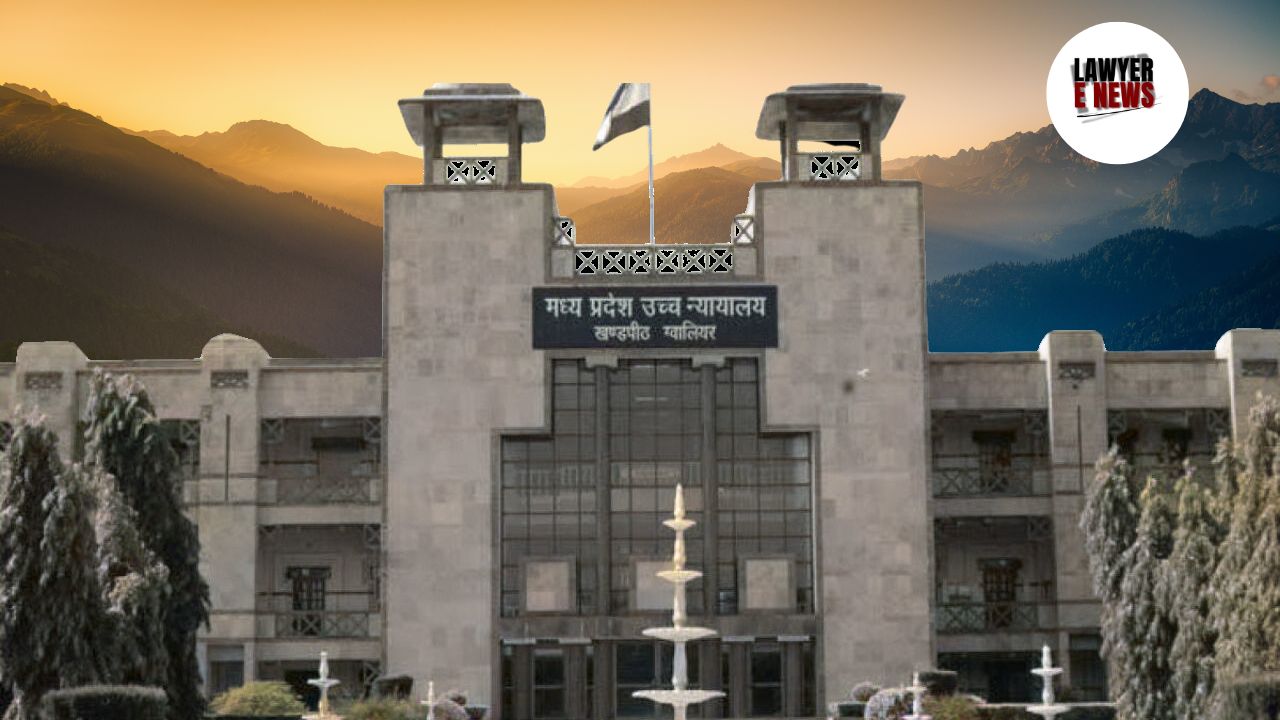-
by Admin
15 February 2026 2:16 AM



Madhya Pradesh High Court, in Writ Petition No. 13369 of 2024, quashed the orders passed by various revenue courts declaring the petitioner’s sale deed null and void under Section 170(B) of the Madhya Pradesh Land Revenue Code, 1959 (MPLR Code). The court remanded the case back to the Sub-Divisional Officer (SDO) with directions to allow the petitioner, Girdhari Pawar, to submit allotment proceedings to prove ownership of the land in question. The case concerns tribal land, and the petitioner’s inability to present crucial evidence earlier led to the adverse rulings by the revenue courts.
The petitioner had purchased land through a registered sale deed dated January 13, 1975 from an individual named Pandri. However, the legal heirs of Umrao Gond, a member of a Scheduled Tribe, filed an application under Section 170(B) of the MPLR Code, claiming the land originally belonged to their tribal ancestor. Consequently, the revenue courts, including the SDO, Collector, and Board of Revenue, ruled against the petitioner, declaring the sale deed null and void and ordering the land to be restored to the tribal heirs.
The petitioner challenged these orders on the grounds that the land was lawfully allotted to Pandri by the Tahsildar, Chhindwara, in 1967, but he had not submitted the allotment documents in the earlier proceedings. The petitioner sought to present these documents to prove that the land did not belong to a tribal member at the time of the sale.
Remanding the Case for Fresh Consideration
The court found that the petitioner’s failure to submit the allotment proceedings to the revenue courts deprived him of the opportunity to establish that the land had been lawfully acquired by Pandri:
"Since the allotment proceedings were never placed before any of the revenue courts, the findings that the petitioner failed to prove the ownership of Pandri were based on incomplete evidence. The matter is remanded to the SDO to allow the petitioner to file these documents and for fresh adjudication." [Paras 10-20].
Findings on Res Judicata: Civil Court Decisions and Revenue Court Proceedings
The petitioner also argued that a prior civil court decision granting him a permanent injunction should prevent the respondents from claiming the land under Section 170(B) of the MPLR Code. However, the court held that the civil court’s findings did not bar the current proceedings:
"The civil court’s decision on ownership does not operate as res judicata, as the appellate court refused to entertain the petitioner’s amendment application for a declaration of title due to jurisdictional limits under Section 257 of the MPLR Code." [Paras 12-18].
The High Court made it clear that any findings made by the civil courts, which went beyond their jurisdiction, would not preclude the revenue courts from reconsidering the issue of ownership based on new evidence.
Opportunity to Submit Allotment Documents
The court allowed the petitioner to submit the crucial allotment proceedings, which were not previously presented to the revenue courts. These documents could demonstrate that the land was not tribal land at the time of sale, thus invalidating the respondents' claim under Section 170(B):
"The petitioner is granted an opportunity to submit the allotment proceedings before the SDO. The SDO shall then decide whether the sale deed is covered by Section 170(B) based on these new documents." [Paras 20-21].
The Madhya Pradesh High Court quashed the orders passed by the SDO, Collector, and Board of Revenue, directing the SDO to reopen the case and consider the petitioner’s evidence. The parties were instructed to appear before the SDO on November 13, 2024.
Date of Decision: October 15, 2024
Girdhari Pawar v. Smt. Savitri Bai Barkade and Others
